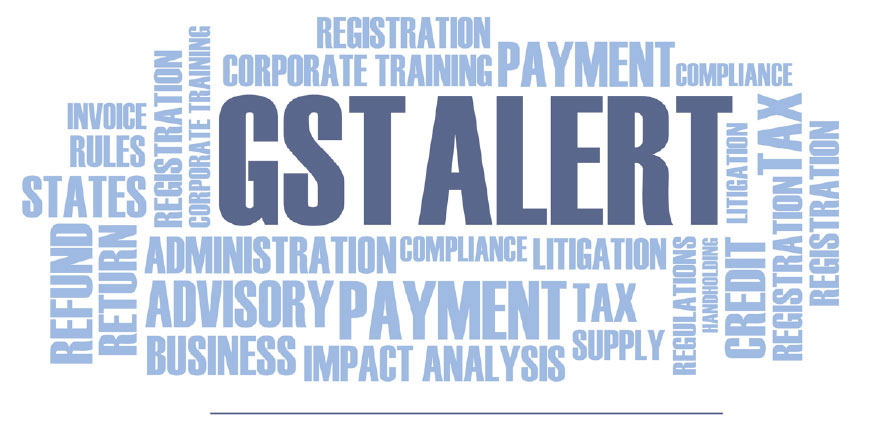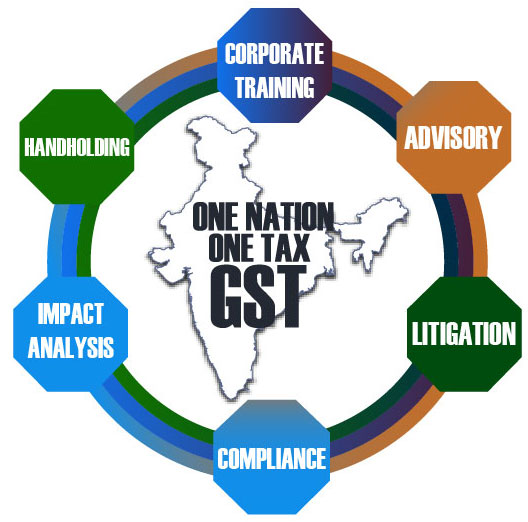Dated 14th May, 2020

Delhi High Court stays penalty for profiteering matter on sale of sanitary napkins .1
Facts of the case:
The application was filed by Johnson and Johnson and M/s. Apollo Hospitals (herein after known as the respondent no 1 and resp0ndent number 2 respectively) before the standing committee of anti profiteering. The issue is that both the parties have not passed the benefit of tax reduction notification2 to their final consumer. Notification came into effect from 27.07.2018 which gives the benefit of nil rate of GST from 12%. Issue after being examined was passed on to the Director General of anti profiteering to investigate in detailed whether the benefit of reduction in the rate of GST on supply of “Sanitary Napkins” has been passed on to the recipients.Contention of Respondent No.1:
Respondent no 1 had immediately given effect to the benefit of reduction in GST rate by reducing the Maximum Retail Price (MRP) of the said goods to pass on the net benefit of rate reduction to end consumers. Post 26.07.2018 the respondent no 1 was not eligible to claim/avail input tax credit on inputs and input services related to sanitary napkins, thus making input taxes as cost of such goods. This made the respondent no 1 increase his base price for the distributors for the supplies post 26.07.2018. The respondent no 1 urged that the ITC lying in the closing stock till 26.07.2018 should not be subject to reversal as the period involved was pre 26.07.2018. He submitted various documents to keep his grounds.Contention of Respondent No.2:
Respondent no 2 claims that he is only a dealer of sanitary napkins which he purchased from the manufacturer that is respondent no 1 and thus the cost of the product are subject to MRP under legal Petrology Act and Rules made there under. Post implementation of new rate there has been difference of only one rupee in MRP and respondent no 2 sold the same at the reduced MRP in compliance with all rules and regulations. In addition to that the benefit of reduction in GST rate was passed on to the consumer by adopting the revised MRP and not recovering additional cost which arose due to non-availability of ITC for the stock procured prior to 27.07.2018 . He submitted various documents to keep his grounds as well.Findings of Director General of Anti Profiteering (DGAP)
DGAP computed profiteering in respect of respondent No 1 by comparing the commensurate post GST rate reduction base price with the base price at which napkins have actually been sold during the period 27.07.2018 to 30.09.2018. Accordinlgy the amount of higher net realisation due to increase in base price beyond 9.4% has been worked out. Therefore, respondent n0. 1 has not passed on commensurate benefit to the recipients for a portion of the old remaining stock where as the excess benefit of the leftover stock had been passed on. Respondent n0.1 had adjusted excess benefit passed on to some recipients against the commensurate benefit not passed on to remaining recipients.As far as respondent 2 (dealer) is concerned, the profiteered amount was limited only to the closing stock that since the reversal of ITC on the closing stock held which has to be treated as cost to respondent no. 2 in respect of the supply of such stock in the post-GST rate reduction period, therefore, the allegation of profiteering against respondent no. 2 is not sustainable.
Contention of the National Authority of Anti Profiteering (NAA)
NAA observed that the product "Sanitary Napkin" was exempted and attracted rate of GST vide a notification3 w.e.f 27.07.2018. However, prior to 27.07.2018 this product attracted 12% GST with the benefit of ITC on the inputs services which was denied from 27.07.2018 as the product was exempted from levy of tax. The GST paid on the inputs and on input service post rate reduction was a cost to the supplier, hence the base prices of the products would increase to the extent of denial of ITC.Accordingly the DGAP based on the turnover and the ITC available to the respondent and estimated the ratio of ITC to the taxable turnover. It may be a fact that the MRP may not have been increased but the fact remains that the base price of the product had increased which was allowed on account of denial of ITC. Therefore, any increase in base price amounts to profiteering.
However there is no fixed methodology and procedure for calculation of the profiteered amount as every case varies. Rule 126 of the CGST Rules empowers the authority to decide the methodology as per requirement. Therefore the question of prescribing any mathematical methodology does not arise but depending on facts of each case the Authority has been determining mathematical methodology as per the provisions of Rule 126.
The NAA also noted that M/s Apollo Hospitals, who was the seller of the impugned product, had clearly increased the base price of the product as can be seen from the invoices. But as the benefit of ITC was not available to it post 27.07.2018, so the reversal of ITC on the closing stock was the extra cost on it.
As per the records, reversal of ITC by it is more than excess realization on closing stock after denial of ITC benefit w.e.f 27.07.2019, therefore no profiteering can be concluded on its part and hence, Section 171 (1) does not hold good in respect of Apollo Hospitals.
The NAA in conclusion held that the provisions of Section 171 are completely clear and unambiguous and there is hardly any scope for misinterpretation of the same. The intent of legislature is to protect the interest of the consumers as and when the public exchequer intends to reduce the taxes or provide the benefit of ITC. Therefore, the Authority within the ambit of the provisions of the Law has not dwelt into price fixation but restricted itself in extending the benefits of rate reduction to the recipient and thus there is no question of violation of the right of the Respondent granted under Article 19 (1) (g).
The law or the Authority has not questioned the Respondents right to conduct business or to fix the prices of its products but ensures that the benefits provided by the Government through the Respondent are necessarily passed on. The question of retaining these benefits by the Respondent would deemed to be doing injustice to the consumers and thus depriving the consumers of the benefits extended through the Public Exchequer.
NAA held that respondent no. 1 had increased the base price w.e.f. 27.07.2019 more than what it was entitled to increase, which clearly shows that it had deliberately in conscious disregard of the provisions of section 171 of the Act had resorted to profiteering. Therefore, upholding the findings of the DGAP, the Authority held that they had profiteered an amount which includes amount for Canteen Stores Department (CSD) outlets and outlets other than CSD outlets. Respondent no 1 had failed to pass on the benefit of rate reduction to his customer. Respondent no 1 was further directed to deposit the said amount as per the provisions of Rule 133 (3) (c) in the ratio of 50:50 in the Central or the State CWFS of all the States and UTs along with the interest @ 18% till the same is deposited.
The concerned Central and State GST Commissioners were directed to ensure that the amount due is got deposited from along with interest and in case the same is not deposited necessary steps shall be taken by them to get it recovered from the Respondent as per the provisions of the CGST/SGST Acts under the supervision of the DGAP. Respondent no 1 was also liable for imposition of penalty under the provisions of section 171(3A) of CGST Act, 2017.
Hence in view of the above discussion and Explanation to Section 171 of the CGST Act, the DGAP are of the opinion that respondent 1 restored to profiteering and thereby was liable to deposit the said amount along with interest.
Present status
Delhi High Court observed that prima facie it appeared that the impugned order needs consideration and the petitioner has been able to make out a strong case for grant of interim relief. Therefore the impugned order is stayed and directions have been issued that no penalty proceedings would be initiated against the petitioner in the meantime.
1JOHNSON AND JOHNSON Vs UOI 2019-TIOL-59-NAA-GST
119/2018-Central Tax (Rate) dated 26.07.2018
119/2018-Central Tax (Rate) dated 26.07.2018, w.e.f 27.07.2018

BT Associates is a premier indirect tax consultant in kolkata, delivering high quality services to client in the area of indirect taxation.GST idea is a unit of BT Associates formed to share knowledge on stakeholders. We cover entire gamut from technical papers to recent development including IT under GST


-
Founder Member
- Bhaskar Thakkar
- Chief Executive officer
- BT Associates, India
- thakkar@btassociate.com
BT Associates is a premier indirect tax consultant in kolkata, delivering high quality services to client in the area of indirect taxation.GST idea is a unit of BT Associates formed to share knowledge on stakeholders. We cover entire gamut from technical papers to recent development including IT under GST






